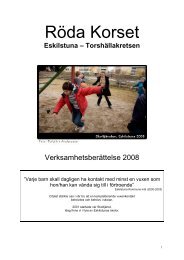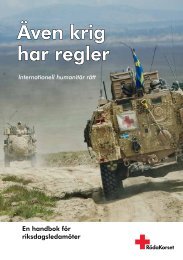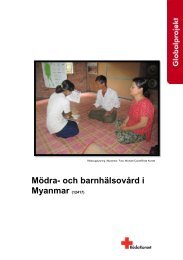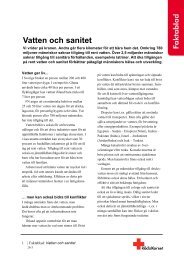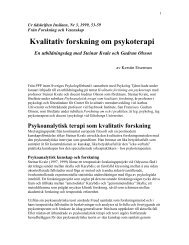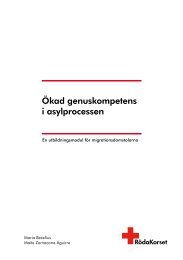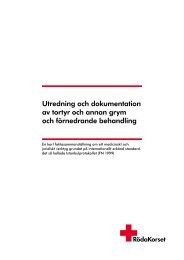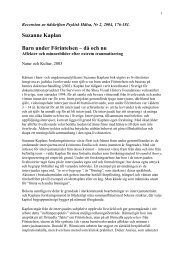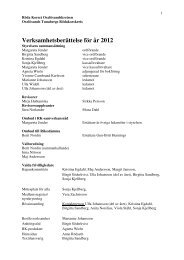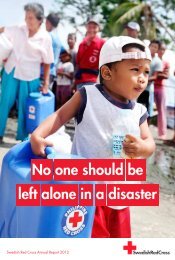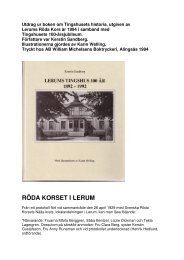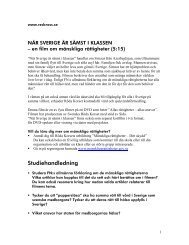chapter 4 - DRK
chapter 4 - DRK
chapter 4 - DRK
You also want an ePaper? Increase the reach of your titles
YUMPU automatically turns print PDFs into web optimized ePapers that Google loves.
Strictly under embargo until Wednesday 22 September at 00:01 GMT (02:01 Geneva time)58CHAPTER 3The response limitations of local governments to provide land needed for temporaryaccommodation or permanent relocation and the stringent land-use subdivisionand conversion regulations that inhibit thisThe lack of funds to help with relocation (funding is often only available forimmediate relief and not for resolving the more fundamental problems)The difficulty in getting official permission for necessary actions that oftenrequire the agreement of many different bodiesThe high price of building materials for reconstruction (especially for disasterswith widespread impacts, such as the floods in Iloilo).Community organizations take the leadProblems always arise after a disaster in urban areas that need representative communityorganizations to manage them, such as who gets the temporary accommodation, whogets priority for new housing, how to design the ‘reblocking’ (reshaping of plot boundariesto improve access) that is acceptable to both tenants and ‘owners’. In 2007, CARE’sKabul Area Shelter and Settlement Project, funded by the United States Agency forInternational Development’s Office of Foreign Disaster Assistance, began with a landusagesurvey and the creation of community councils to select beneficiaries in clustersrather than individually. CARE also signed a memorandum of understanding with theKabul municipality, which linked housing to broader issues of land tenure, occupancyrights and housing security, and partnered with the Afghan Development Associationand the Sanayee Development Organization, two local NGOs. CARE’s report on theproject noted: “Essentially, a successful shelter intervention must include strategies forgood governance that focus on increasing people’s understanding of their rights andresponsibilities, as well as enhance the ability of authorities to listen to the needs of thepeople, that encourage all to find solutions to problems that affect everyone.”Shack/Slum Dwellers International (SDI) is a confederation of country-level organizationsof the urban poor from 28 countries throughout Africa, Asia and Latin America.According to the SDI affiliates that have responded to disasters, certain factors havefacilitated effective responses. The first is the existence of savings groups in the affectedsettlements, which helped to provide immediate support for those impacted by thedisasters. The second is the existence of community organizations which were able tohelp with immediate relief and support the social cohesion needed to take action toresolve longer-term issues such as rebuilding or relocation (see Box 3.2).Community-leaders from SDI affiliates often visit disaster sites and impacted communitiesand encourage and support the formation of local representative organizationsand savings groups. They also bring their experience with savings management,organizational development, community surveys and house modelling, developinglife-size models of houses to see which design and which materials produce the bestlow-cost housing. They support community profiling and surveys in order to mobilize



